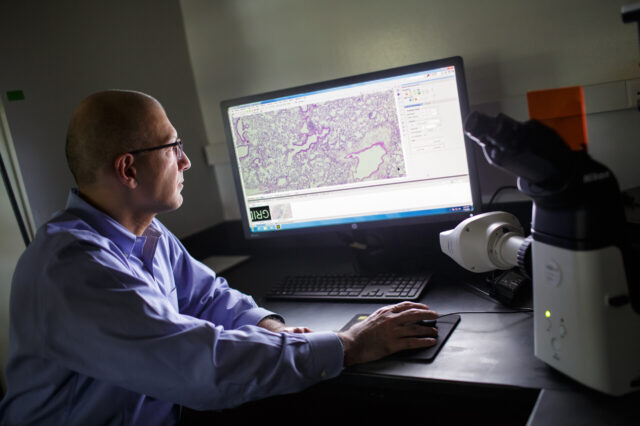Definition
A spore is a cell that certain fungi, plants (moss, ferns), and bacteria produce. Spores are involved in reproduction.
Certain bacteria make spores as a way to defend themselves. Spores have thick walls. They can resist high temperatures, humidity, and other environmental conditions.
The bacteria Clostridia form spores. These spores create the bacteria that cause a rare condition called gas gangrene and a type of colitis that is linked to use of antibiotics.
Information
Chemical disinfectants can kill bacteria, but they do not destroy their spores.
A process called sterilization destroys spores and bacteria. It is done at high temperature and under high pressure. In health care settings, sterilization of instruments is usually done using a machine called an autoclave.
References
Gerding DN, Johnson S. Clostridial infections. In: Goldman L, Schafer AI, eds. Goldman-Cecil Medicine. 26th ed. Philadelphia, PA: Elsevier Saunders; 2020:chap 280.
Statler VA, Bryant KA. Antibiotic-associated colitis. In: Cherry JD, Harrison GJ, Kaplan SL, Steinbach WJ, Hotez PJ, eds. Feigin and Cherry's Textbook of Pediatric Infectious Diseases. 8th ed. Philadelphia, PA: Elsevier; 2019:chap 45.

